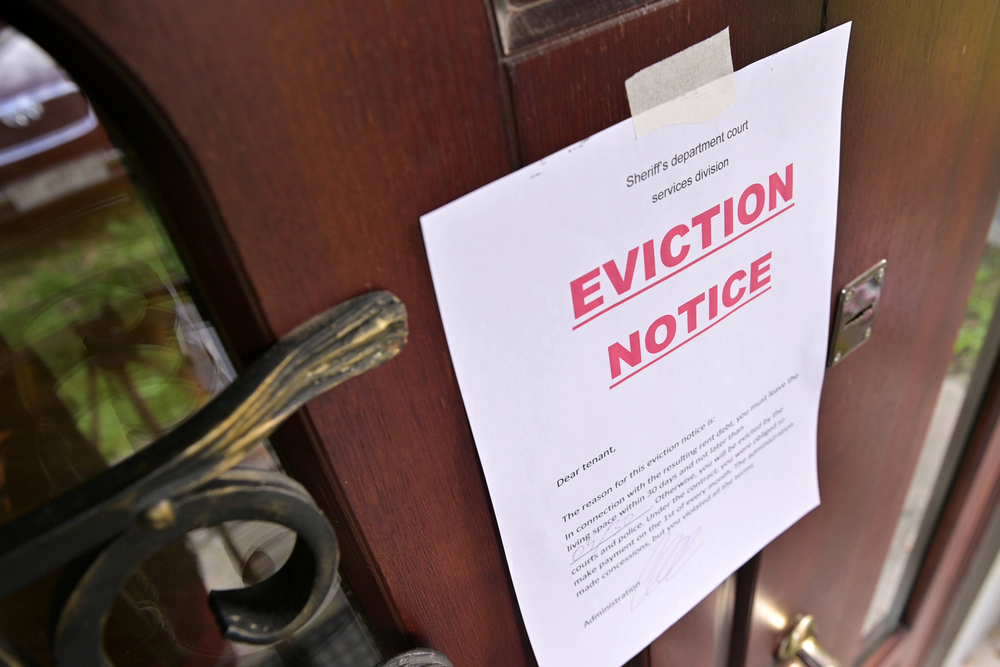
Despite exercising great diligence in selecting ideal tenants for your property, you may still encounter troubling circumstances. Late rent payments might become habitual, complaints from neighbors regarding noise disturbances could pile up, or, in a worst-case scenario, a tenant may inflict significant damage to your property. When dealing with such unfavorable situations, eviction might be your only recourse to prevent further financial loss.
It's crucial to understand that eviction is not a casual affair but a formal, legal process. It requires meticulous attention to local laws and regulations. In several jurisdictions, including Washington, D.C., and states like Virginia, landlords are strictly forbidden from carrying out what are referred to as 'self-help' evictions. This means, as a landlord, you are not legally authorized to take matters into your own hands by moving a tenant's belongings without their consent, changing locks, or cutting off utilities in an attempt to force tenants out. Such actions can lead to serious legal consequences.
Given the legal intricacies and implications, it becomes pivotal for you as a landlord to fully understand the local laws governing valid reasons for eviction and the subsequent process. Failing to adhere to these regulations can result in the case being dismissed or even ruled in favor of the tenant. Consequently, you would need to initiate the lengthy eviction process all over again, which can be a risky proposition with a problem tenant. In light of this, you should consider consulting with a lawyer who specializes in property law or a proficient property management company that has a deep understanding of local regulations. This step can ensure you take the right actions at the right time.
Typically, the eviction process starts with notifying the tenant about the issue in writing. For instance, if they are late in paying rent, landlords are usually required to issue a written notice giving five days for the tenant to pay the due amount or vacate the property. In case of other lease violations, landlords are generally required to provide a detailed written explanation of the violations and the expected remedial actions. The tenant is given a longer period, often 30 days, to address the problem.
However, if the tenant fails to resolve the problem within the stipulated period, the landlord can then initiate eviction proceedings. These proceedings take place in the local court that handles eviction cases. The court then schedules a hearing where both parties can present their case. It's important to note that the timelines and specific procedures can vary significantly by jurisdiction, which further emphasizes the importance of understanding local laws.
On successfully securing a judgment for eviction against your tenant, they may decide to leave of their own accord. However, if they choose to resist the eviction order, local law enforcement typically steps in to enforce the eviction, acting on the order from the court. As a landlord, you may need to arrange for a crew to remove the tenant's belongings from the property.
Despite the existence of a legal eviction process, it's important to remember that eviction can be a lengthy, complex, and costly ordeal. It can result in lost rental income, legal fees, and the potential for property damage. Hence, the most effective insurance against eviction, and the financial losses associated with it, is to perform a comprehensive and thorough tenant screening process. By doing so, you increase the chances of securing reliable and responsible tenants, significantly reducing the likelihood of problematic behavior that might necessitate eviction.
Professional property management companies can play a vital role in this regard, as they bring their extensive experience and resources to bear on the tenant selection process. Their expertise can ensure a thorough vetting of all potential tenants, significantly reducing the risk of future issues. Moreover, if problems do arise, these management professionals are well-acquainted with the eviction system and can ensure all matters are handled correctly and efficiently for the quickest and most beneficial resolution.
In conclusion, while eviction can seem like a daunting prospect for any landlord, knowing the process and being well-prepared can make it significantly more manageable. And remember, having reliable support in the form of legal advice or a competent property management company can make all the difference.
Looking for property management services in your area? Find out about our services and fees from one of our experienced agents. We provide management & brokerage services for community associations, residential properties, and commercial properties.

Discover six strategies to turn tenants into loyal advocates. Enhance satisfaction, reduce turnover, and improve your landlord business with these tips.

Discover renter-friendly decorating tips to transform your rental property with temporary décor. Add personal style without risking your security deposit.
We're proud to make partnering with us easy. Contact our team to connect with one of our industry experts and get started today.